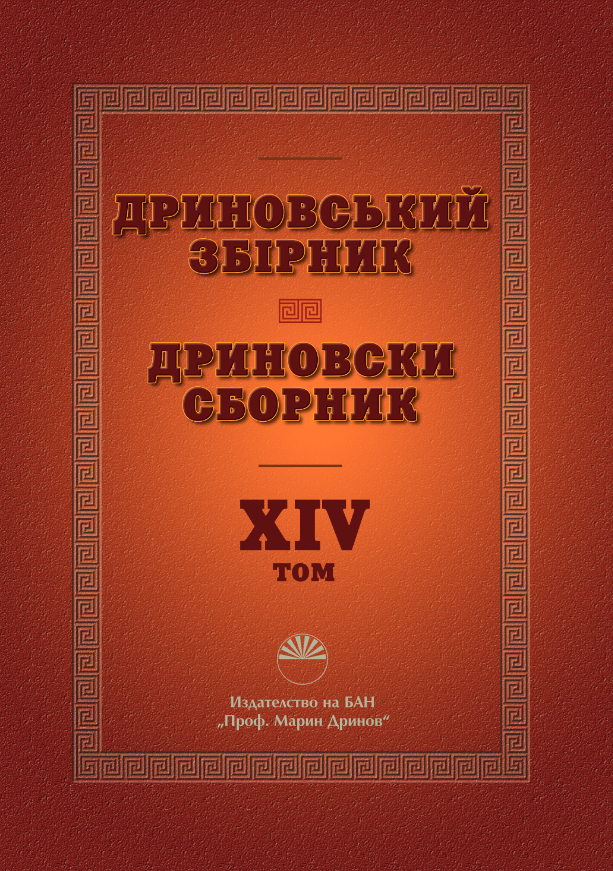Europe “without boundaries”, or the Balkans in the light of “border studies”
Abstract
The article deals with the actuality of “border studies” in the European ethnological discourse focused on the symbolic, cultural, geographic, sociological, political, anthropological and other aspects of the investigation. Correlation of the global and the local, or macro- and micro levels in “border studies” is seemed to be one of the principle theoretical proposition, especially when the question is the ethnic mosaic Balkan region. The many-sided scientific study causes the breadth of the terminology, connected with the necessity to divide ‘boundary’, ‘border’, ‘frontier’, understanding that each of them can give the adequate model constructing different border zone peculiarities. Anthropological discourse is based on the concept of the boundary as a real territory and at the same time as a symbolically space marked with the certain cultural and mythological senses.
Processes of the European integration are held simultaneously with the new borders’ establishment – real and as well as symbolic, that is especially typical for the Balkan region which space appears as a row of the variants. The aim of the paper is to show the necessity to take into account when we analyze the certain ethno-cultural dialect interaction and correlation of different historical periods, traditions and cultures. The actuality of such discourse is determined by the historical heritage of the region revealed as the continuation of tradition or noticeable as its reflection.
Downloads
References
Barth, F. 1969. Introduction, Ethnic Groups and Boundaries. The Social Organization of Cultural Differences. London. P. 9-38.
Barth, F. 1989. The Analysis of Culture in Complex Societies, Ethnos, 54 (3/4). P. 120-142.
Danforth, L.M. 1995. Haw Can a Woman Give a Birth to one Greek and one Macedonian? The Construction of National Identity among Immagrants to Australia from Northern Greece, (forthcoming).
Donnan, H. and Wilson, T.M. 1994. An Anthropology of Frontiers. Border Approaches. Anthropological Perspectives on Frontiers. Maryland: University Press of America. P. 1-14.
Gosztonyi, K. 1996. Mostar: Borders, Boundaries, Interest Groups. Europæa, II/1. P. 49-76.
Hristov, P. 2011. Trudovata mobilnost na Balkanite – istoricheski obraztsi I svremeno razvitie [Labour Mobility in the Balkans – Past Patterns and Contemporary Trands]. Migratsii na Balkanot: bilateralni istrazhuvan’a [Migrations on the Balkans: Bilateral Researches]. Skopje, B. Ristovska-Josifovska. S. 73-103. (in Bulgarian).
Jensen, M. and Ingeog, E. 1974. En deskriptiv belysning af det tyske mindretal I Nordeslesvig 1945-1970. Københavns Universitet.
Kearney, M. 1991. Borders and Boundaries of State and Self at the End of Empire. Journal of Historical Sociology.Vol.4. № 1.
Kyrchiv, R.F. 2013. Studii z ukrains’ko-pols’koho etnokul’turnoho pohranycha [Studies on Ukrainian-Polish Ethnic and Cultural Borderland]. Lviv: Ivan Franko LNU.
Küstlin, K. 2017. Vanishing Borders and the Rise of Culture(s). Ethnologia Europaea, 47/1. Р. 58-64.
Mykytenko, O. 2019. Tematyzatsia “kordonu” v evropejs’komu etnologichnomu dyskursi: problema definitsiї i zmistu [‘Border’ Themes in the European Ethnological Discourse: Problem of Definitions and Content]. Frontyr v etnokul’turnomu konteksti. Odes’ki etnografichni chytann’a. Odesa, V. Kushnir. S. 58-69. (In Ukrainian).
Nitsiakos, V. 2013. Ot kurbeta na predmodernata epokha do postmodernia transnatsionalizm. Teoretichni i metyodogichni refleksii, osnovani na edno konkretno izsledvane [From Pre-Modern Kurbet to Post-Modern Transnationalism. Theoretical and Methodological Reflections Based on a Case Study]. Blgarska etnologia, br. 2. S. 135-148.
Sack, R.D. 1986. Human Territoriality. Cambridge: Cambridge University Press.
Thomassen, B. 1996. Border Studies in Europe: Symbolic and Political Boundaries, Anthropological Perspectives. Europæa, II/1. Р. 37-48.
Todorova, M. 2006. Imaginarni Balkan [Imagining the Bakans]. Beograd, Biblioteka XX vek: Krug. (In Serbian).
Toncheva, V. 2012. Nepoznata Gora [The Unknown Gora, Sofia] (In Bulgarian).
Toncheva, V. 2013. Lokalna identichnost – upotrebi na termina [Local Identity – Application of Concept]. Blgarski folklor, 2, 2013, s.153-168. (In Bulgarian).
Vainraikh, U. 1979. Iazykovye kontakty. Sostoianie i problemy issledovania [Language contacts. The state and problems of investigation] Kiev: Vyshcha shkola (In Russian).
Vereni, P. 1996. Boundaries, Frontiers, Persons, Individuals: Questioning „Identity” at National Borders. Europæa, II/1. Р. 77-90.

